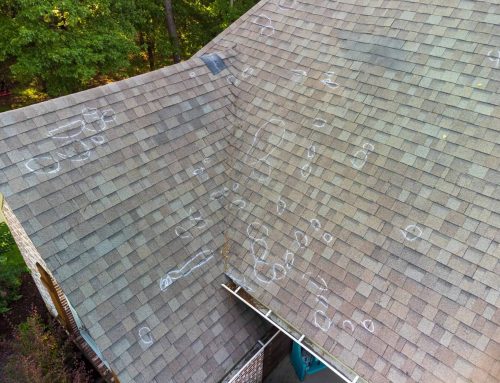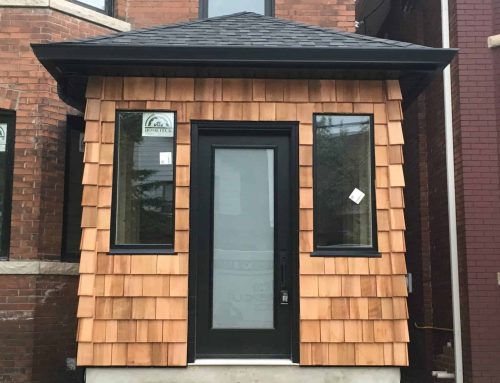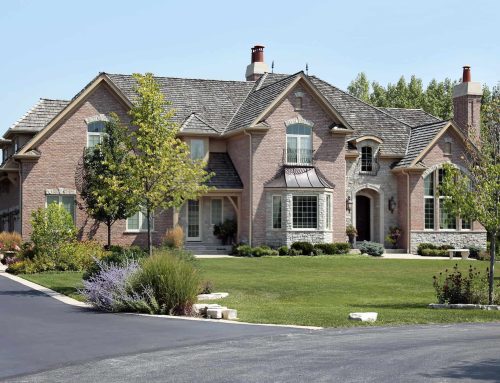For Toronto’s challenging climate, metal roofs offer the best overall energy efficiency, followed closely by slate for premium applications, while high-quality asphalt shingles provide a budget-friendly alternative that still delivers meaningful energy savings.
Your roof significantly impacts your home’s energy consumption and comfort throughout Toronto’s extreme seasonal variations. With summer temperatures exceeding 30°C and winter lows dropping below -20°C, plus heavy snow loads and frequent freeze-thaw cycles, the right roofing material choice can save hundreds of dollars annually in utility costs while improving year-round comfort.
Understanding Energy Efficiency in Toronto’s Climate Context
Toronto’s continental climate presents unique challenges for roofing materials, with temperature extremes that can range from summer highs exceeding 30°C to winter lows dropping below -20°C. This dramatic seasonal variation, combined with significant precipitation including heavy snow loads, requires roofing materials that perform efficiently across a wide range of conditions.
The Science Behind Energy-Efficient Roofing
Energy efficiency in roofing involves multiple factors working together to reduce heat transfer between your home’s interior and the external environment. During Toronto’s hot summers, an efficient roof reflects solar radiation and prevents excessive heat absorption, reducing the burden on air conditioning systems. In winter, the same roof should provide excellent insulation properties to prevent heat loss and minimize heating costs.
The key performance characteristics include thermal resistance (R-value), solar reflectance, thermal emittance, and durability under freeze-thaw cycles. Materials that excel in these areas while withstanding Toronto’s weather extremes offer the best long-term energy efficiency benefits.
Local Climate Considerations
The Greater Toronto Area experiences approximately 4,000 heating degree days annually, indicating substantial heating requirements throughout the extended winter season. Summer cooling loads, while shorter in duration, can be significant during heat waves when temperatures soar and humidity levels rise. This dual challenge requires roofing materials that perform effectively in both heating and cooling scenarios.
Snow load management is another critical factor, as Toronto typically receives 115-130cm of snowfall annually. Roofing materials must not only support these loads but also facilitate proper snow shedding to prevent ice dam formation and maintain insulation effectiveness.

Metal Roofs: The Premium Energy-Efficient Choice
Metal roofing has emerged as one of the most energy-efficient options available for Toronto homeowners, offering exceptional performance across all seasons while providing long-term durability and value.
Superior Reflective Properties
Modern metal roofs feature specialized coatings that reflect up to 70% of solar radiation, significantly reducing heat absorption during Toronto’s summer months. This reflective capability, known as solar reflectance, can lower roof surface temperatures by 50-60°F compared to traditional asphalt shingles on hot days.
The cool roof technology incorporated in quality metal roofing systems includes specially formulated pigments that reflect infrared radiation while maintaining desired colors. This means homeowners can choose from a wide range of attractive colors without sacrificing energy efficiency performance.
Winter Performance Advantages
Metal roofs excel in Toronto’s winter conditions due to their smooth surface and thermal properties. Snow slides off metal roofing more readily than textured surfaces, preventing dangerous ice dam formation that can damage both roofing and gutter systems. This natural snow-shedding capability also maintains the roof’s insulation effectiveness by preventing heavy snow accumulation.
The thermal properties of metal also facilitate even heat distribution, reducing hot spots that can cause uneven snow melting and subsequent ice formation. When properly installed with adequate ventilation and insulation, metal roofs help maintain consistent attic temperatures throughout winter.
Longevity and Maintenance Benefits
Quality metal roofing systems can last 40-70 years with minimal maintenance, providing decades of consistent energy efficiency performance. Unlike materials that degrade over time and lose efficiency, properly installed metal roofs maintain their reflective properties and structural integrity throughout their lifespan.
The durability of metal roofing also means fewer replacement cycles, reducing the environmental impact and long-term costs associated with roofing maintenance. In Toronto’s challenging climate, this longevity translates to exceptional value for homeowners.

Slate Roofs: Traditional Excellence with Modern Efficiency
Slate roofing represents the pinnacle of natural roofing materials, offering exceptional energy efficiency combined with unmatched durability and aesthetic appeal for Toronto homes.
Natural Insulation Properties
Natural slate possesses excellent thermal mass characteristics, absorbing heat slowly during warm periods and releasing it gradually as temperatures drop. This thermal lag effect helps moderate indoor temperature fluctuations, reducing both heating and cooling demands throughout Toronto’s variable seasons.
The dense composition of slate also provides natural sound insulation, reducing noise from rainfall and hail that can be particularly beneficial during Toronto’s sometimes intense storm events.
Weather Resistance and Longevity
Slate’s natural composition makes it virtually impervious to Toronto’s freeze-thaw cycles, a critical advantage given the region’s winter conditions. Unlike manufactured materials that can crack or deteriorate under thermal stress, quality slate maintains its integrity and performance characteristics for centuries.
The non-porous nature of slate prevents water absorption that could lead to freeze damage, while its natural cleavage properties allow for proper installation that accommodates thermal movement without compromising weather protection.
Installation Considerations for Toronto
Slate roofing requires specialized installation techniques and structural considerations due to its weight, typically 800-1,500 pounds per square compared to 200-300 pounds for asphalt shingles. Toronto-area homes built before certain periods may require structural reinforcement to safely support slate roofing systems.
Professional installation is essential for achieving optimal energy efficiency with slate roofing. Proper underlayment, ventilation, and attachment methods ensure the thermal benefits of slate are fully realized while maintaining weather protection throughout Toronto’s demanding climate cycles.
Asphalt Shingles: Budget-Conscious Energy Efficiency
While premium materials like metal and slate offer superior energy efficiency, high-quality asphalt shingles remain a viable option for Toronto homeowners seeking improved energy performance within budget constraints.
Modern Asphalt Technology Improvements
Today’s architectural asphalt shingles incorporate significant technological advances compared to basic three-tab designs. Cool roof asphalt shingles feature reflective granules that increase solar reflectance by 25-30% over standard products, providing meaningful energy savings during Toronto’s summer months.
Advanced polymer-modified asphalts offer improved flexibility and durability under Toronto’s freeze-thaw conditions, maintaining performance characteristics longer than basic formulations. These improvements extend shingle life while preserving energy efficiency benefits throughout the product’s lifespan.
Cost-Effective Performance
Quality asphalt shingles typically cost 60-70% less than metal roofing and significantly less than slate, making them accessible for homeowners with budget constraints. When combined with proper insulation and ventilation systems, asphalt shingles can provide reasonable energy efficiency for Toronto homes.
The key to maximizing asphalt shingle energy efficiency lies in selecting products with enhanced reflective properties and ensuring proper installation with adequate ventilation. Professional installation that addresses Toronto’s specific climate challenges can significantly improve performance outcomes.
Limitations and Considerations
Asphalt shingles generally require replacement every 15-25 years, depending on quality and local conditions. This shorter lifespan means multiple replacement cycles compared to metal or slate, potentially offsetting initial cost savings over time.
Heat absorption remains higher with asphalt compared to metal roofing, resulting in increased cooling loads during Toronto’s hottest periods. However, proper attic ventilation and insulation can mitigate much of this disadvantage.
Making the Right Choice for Your Toronto Home
Selecting the most energy-efficient roofing material for your Toronto home requires balancing performance, budget, architectural compatibility, and long-term goals. Several factors should guide your decision-making process.
Evaluating Your Home’s Specific Needs
Consider your home’s architectural style, structural capacity, and current energy performance when evaluating roofing options. Older Toronto homes may benefit more from premium materials that provide superior insulation, while newer, well-insulated homes might achieve adequate efficiency with quality asphalt products.
Your heating and cooling systems also influence optimal roofing choice. Homes with older, less efficient HVAC systems benefit more from premium roofing materials that reduce thermal loads, while homes with modern, efficient systems may see adequate returns from mid-range options.
Long-term Financial Analysis
Calculate total ownership costs including initial installation, maintenance, energy savings, and replacement cycles when comparing options. While metal and slate require higher upfront investments, their longevity and superior energy efficiency often provide better long-term value for Toronto homeowners.
Energy savings calculations should factor in Toronto’s specific utility rates and seasonal patterns. The substantial heating season in the GTA means insulation and thermal performance carry significant weight in material selection decisions.
Professional Assessment and Installation
Regardless of material choice, professional assessment and installation are crucial for achieving optimal energy efficiency in Toronto’s challenging climate. Experienced roofing contractors understand local building codes, structural requirements, and installation techniques that maximize performance while ensuring long-term reliability.
Quality installation includes proper ventilation design, insulation coordination, and weather protection details that are essential for energy efficiency in Toronto’s variable conditions. These factors often matter more than material choice alone in determining overall system performance.
Protecting Your Investment with Expert Guidance
Energy-efficient roofing represents one of the most impactful home improvements you can make in Toronto’s climate, potentially reducing energy costs for decades while improving comfort and property value. The choice between metal, slate, and advanced asphalt options depends on your specific circumstances, but all can provide meaningful efficiency improvements when properly selected and installed.
The key to success lies in understanding how different materials perform in Toronto’s unique climate conditions and ensuring professional installation that maximizes their energy efficiency potential. With proper material selection and expert installation, your new roof can provide substantial energy savings while protecting your home through countless seasonal cycles.
Ready to explore energy-efficient roofing options for your Toronto home? Contact ODS for a comprehensive assessment that considers your home’s specific requirements, budget, and long-term goals. Let us help you choose the roofing solution that delivers optimal energy efficiency and lasting value for your Greater Toronto Area property.







